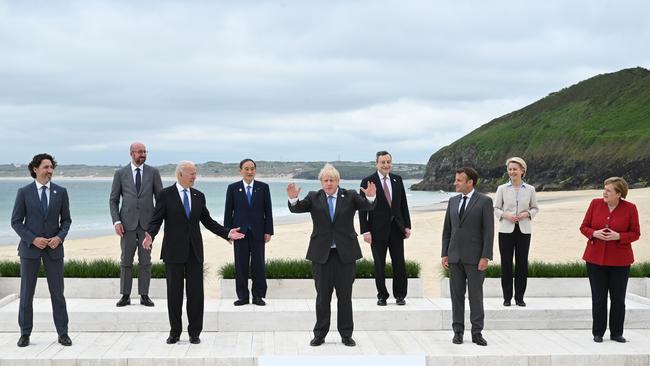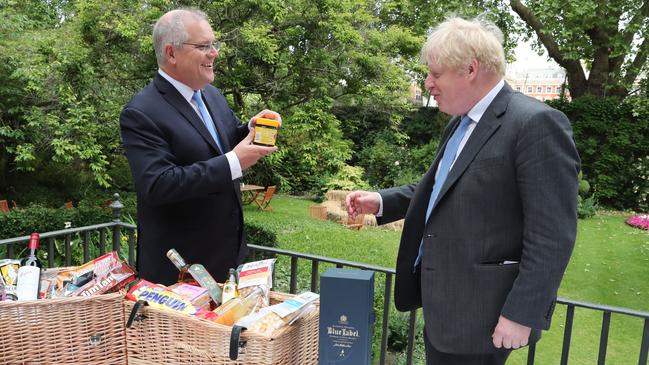
The first were dismayed that he wasn’t attacked, ridiculed and rejected for not committing to ‘net zero by 2050’ far less indeed promising to close all our coal-fired power stations by 2035.
Why should only Victorians in the Dandenongs get to enjoy the absence of reliable electricity? Surely all Australians should have that joyous future as well, and as quickly as possible?
On the other hand, most voters, I’d venture to suggest, sat somewhere between complete indifference to yet another talkfest, and a seething anger, especially among locked-down Victorians, at the ‘travel-for me, but not-for-thee’ hypocrisy.
True, they might have enjoyed watching the pollies making embarrassing prats of themselves, with their universal fully-vaccinated ostentatious elbow-bumping before they got down to masklessly blowing smoke into each other’s faces.

Nevertheless, all that said, in the context of these talkfests, it was a triumph for ScoMo; it was also of very great positive national significance for Australia.
The fact that ScoMo and Australia were there at all was very significant, both in the short term focus of that one big issue – standing up to China; and longer-term in the context of an emerging G7-plus-plus.
There are two major geopolitical groupings/talkfests- this G7 and the G20.
The G7 is supposed to be the ‘heavyweight’. It’s the seven biggest countries/economies in what used to be called The West: the US, Japan, Germany, UK, France, Italy and Canada.
It’s actually a sort of G7-plus, as the European Union as ‘a group’ gets not just one but two reps at the meets.
The ‘other woman’ (to Germany’s Angela Merkel) on the ostentatiously socially-distanced group photo shoot was another German, the president of the EC, the bureaucratic European Commission that runs the EU, Ursula von der Leyen.
For a while, from the mid-1990s to the mid-2010s, it was the G8 when Russia was included. Russia was invited in by one US Democrat president Bill Clinton and invited out by another, president Obama.
The G20, supposedly invented by our Kevin Rudd – at least, in his own mind – was supposedly becoming in the 2010s the more important talkfest, as it did bring in Russia, and China, and a much broader range of other significant mid-level countries, including obviously Australia.
But China and Russia have arguably combined to neuter the growing relevance of the G20 and so worked indirectly to re-boot the G7. But, perhaps, more particularly a G7-plus-plus.
Yes, the existing G7 plus the rest of Europe combined under the EU/EC; but also the four countries that were specifically invited to go to Cornwall: apart from Australia, the world’s biggest democracy and a significant counter to China, India, South Korea and South Africa.
I’m in no position to predict, and as you might have guessed, I’m no big fan of these groupings – we’ve had these G7 meetings every year since 1975 and they have achieved just a tiny bit more than absolute squat – but we might have seen an informal start to a G7-plus-plus semiformally including Australia.
And to stress, that excludes both China and Russia.
While I don’t think getting to grandstand and smoodge on the exclusive international stage counts for much in the real scheme of things, I accept that others disagree and a semipermanent place at the G7 would rate for Australia.
But I can’t help looking at the bunch of, let’s be generous, second-raters at this (and every) G7 contrasted with the two at the original G2, back in the early 1940s: Winston Churchill and FDR.




The G7 meeting in the UK was clearly a personal triumph for prime minister Scott Morrison – not, that I think, it won him any brownie points from the very different groups of the ‘inside the bubble’ Canberra commentariat on the one hand, or ordinary voters on the other.